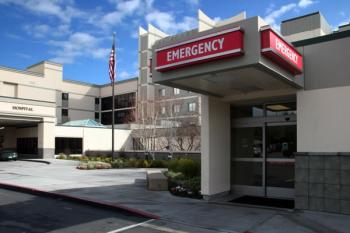
Population Health
Latest News
Latest Videos
Podcasts
CME Content
More News

Long COVID is most common among adults with chronic conditions, lower physical activity, and incomplete vaccination, and who live in certain US regions.

Adults with diabetes were 24% less likely to visit an emergency department in 2021 than in 2019.

Lindsey Valenzuela, PharmD, explains how value-based models empower a single pharmacist to manage multiple layers of these disease states.

CVS Pharmacy acquires stores and prescription files from over 600 Rite Aid and Bartell Drugs pharmacies.

WHO's latest report shows alarming trends in antimicrobial resistance, highlighting urgent global challenges and the need to improve surveillance and treatment.

Lindsey Valenzuela, PharmD, explains how pharmacists can prevent drug interactions and improve coordination for women with arrhythmia and chronic disease.

Lindsey Valenzuela, PharmD, explains how cost, coverage gaps, and tech literacy hinder women’s access to early arrhythmia detection tools.

A 12-year study in China finds that individuals who dine out often face a higher risk of colon and rectal cancers, with obesity playing a mediating role.

Experts at the Skin of Color Update highlighted the potential benefits of GLP-1 RAs in managing obesity, as well as psoriasis and hidradenitis suppurativa symptom management.

Arthritis is not one disease, and it has an impact that extends far beyond the well-known osteoarthritis or rheumatoid arthritis.

Lindsey Valenzuela, PharmD, explains how atypical symptoms, research gaps, and care inequities delay arrhythmia detection in women.

US pediatric influenza-associated encephalopathy (IAE) cases surged during the 2024-2025 season, highlighting severe health risks and the need for better surveillance.

Robert Andrews, CEO of the Health Transformation Alliance, discusses the implications of the new TrumpRx platform on drug pricing policy.

UPMC's innovative pilot program combines medically tailored meals and nutrition education to tackle chronic disease and improve community health outcomes.

Laxmi Patel of Savista discusses how the Budget Reconciliation Act could widen Medicaid coverage gaps and strain hospitals across states.

Public health must address emotional and structural inequities, emphasizes Perry N. Halkitis, PhD, MS, MPH, dean of the Rutgers School of Public Health.

The European Respiratory Society (ERS) Congress fosters collaboration among global experts, advancing respiratory health and promoting equality in medicine.

Study finds slight temperature shifts are linked to changes in physiological stress responses.

Louisiana and Mississippi had the highest rates of maternal and child mortality in the country, respectively.

Hope Krebill of the Masonic Cancer Alliance at the University of Kansas Medical Center outlines patient navigation models that improve outcomes and reduce missed appointments.

Michaela Nuttal, MS, explores the complex culture of smoking among nurses, highlighting challenges and motivations for quitting within health care settings.

Hope Krebill, MSW, BSN, RN, discusses the challenges rural hospitals face in delivering therapies like CAR T and bispecifics.

Research reveals that a high-fruit diet may protect women's lung function from air pollution, according to Pimpika Kaewsri, MSc.

Laxmi Patel urges hospitals to embed financial screening and simplify payment options to prepare for rising levels of uninsured patients from Medicaid changes.

From proactive recruitment to academic-community partnerships, Hope Krebill highlights ways to improve clinical trial participation.



















